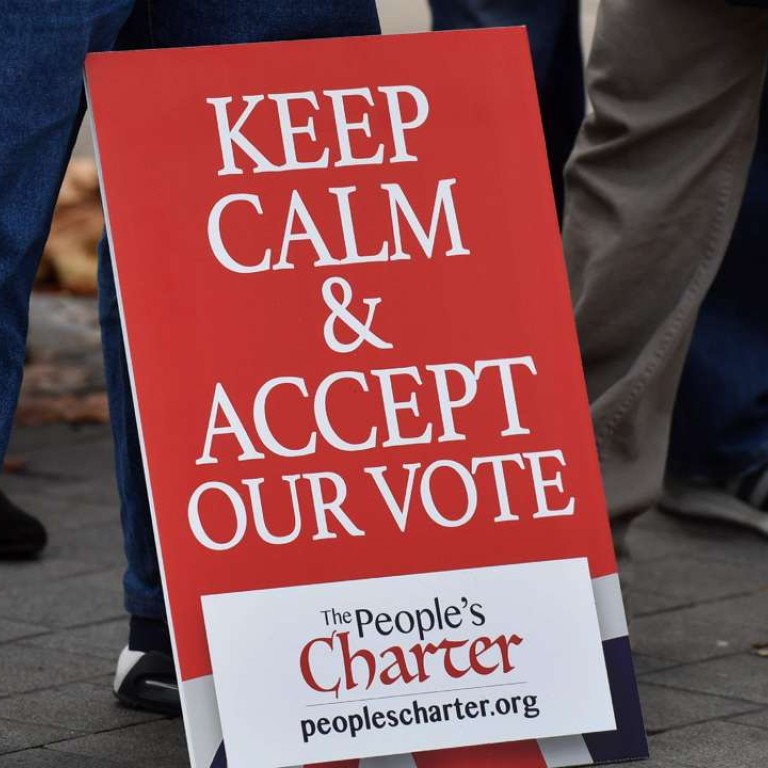
In voting to leave the EU, Britain finally has a chance to be free
Ian Whiteley says Britons tired of broken promises on prosperity and sceptre-wielding by Brussels have seized the chance to chart their own destiny, and signs are the doomsayers will be proved wrong
There is a fundamental misunderstanding of the reasons why Britain is going it alone. It has a lot to do with being British – not just for those born here but also people who became British citizens and understand this subtle characteristic of doing the unexpected.
Prime Minister May prepares country for ‘defining moment’
Having spent most of my life in Hong Kong and other parts of Asia until I returned to the UK in 1997, I’ve witnessed the steady distrust of the European Union and of British politicians who supported our continued membership and lied to us about the merits and demerits of European membership.
I’ve witnessed the steady distrust of the EU and British politicians who lied to us about the merits of membership
A club set up with the promise of better trade, easier access to markets and greater prosperity morphed into the European Super State that now tells us what to do.
We never voted for this. And that’s the point. When the chance to vote on it came along, we seized it. We didn’t think about which markets might be lost and how it might hit our wallets. Most of us who voted to quit the EU were voting for freedom, independence and, above all, the right to rule ourselves in the way we saw fit.

This is not fanciful thinking. Economically, Britain is doing better than many expected and, although the “remainers” and “remoaners” can’t give up the hopeless dream that we will somehow change our mind, the majority in this country cannot wait for the final cutting of the ties that have bound us like a prisoner to an undemocratic regime in Brussels and dominated our lives.
The real reason Brexit could influence East Asia’s ‘great game’
For us, the future is full of hope. Like the “bulldog” spirit that emerged in the second world war, people have pulled together, there is once again a “can-do” spirit in this land, at least among those who voted to leave. We still have to convince a lot of doubters, but they’ll stop grumbling when they see we can make it alone and, to copy US President Donald Trump, “make Britain great again”.

It has been reported that China has seen a doubling of companies investing in the UK. They see a nation with enormous potential for profit: a place where the rule of law is sacrosanct and where serious corruption is rare. A place where people work hard and benefits are shared. A place with a superb national health service, excellent schools and impressive universities.
Last week, the Organisation for Economic Cooperation and Development raised its forecast for UK growth this year by more than that for any other major economy. Brexit will not bring this down.
Also this week, Chancellor Philip Hammond set the course for Britain as we prepare to start negotiations with Europe within days for our exit.

Brexit: Britain can capitalise on opportunities to expand economic ties with China
Don’t listen to the doomsayers. There is everything to look forward to in post-Brexit Britain.
We won’t be needing food parcels just yet.
Ian Whiteley, a British journalist formerly with the BBC, worked in Hong Kong between 1978 and 1997 for RTHK, TVB, ATV and CNBC
